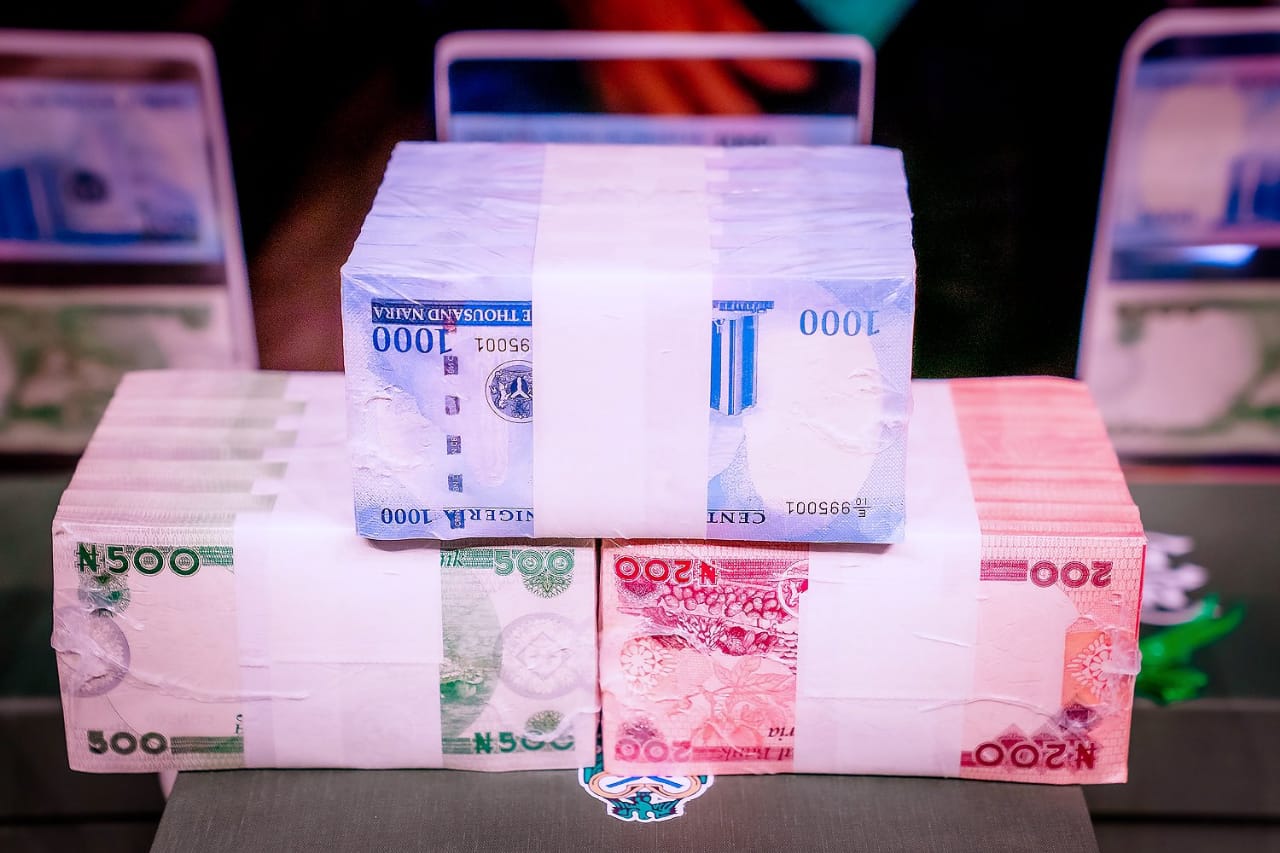It may take us quite some time to come to grips with all the chaos arising from the ongoing naira currency redesign. It has thrown up several pieces in the narrative that require time to put together for one to make some sense of the melodrama playing out.
Our banks have for now ceased from functioning as banks which traditional role in the financial system is intermediation: standing as a conveyor receiving from those who have funds and passing the same over to those who lack funds. This is the role that keeps the financial system going. Now, there is confusion as to who has funds and who does not. It is difficult now to know who is a deficit unit and who by definition needs to be connected by the banks to the surplus unit. This is because those who have (deposits) with banks do not have access to such funds. Therefore, everyone is asking, “Where is the money?”
Those who are filling the gap, for now, are modern-day Shylocks who want to cut more than a pound of flesh. In a formal banking environment, the price for intermediation, expressed in the form of interest rate, is largely regulated. In the present pandemonium, arbitrariness has taken over. Those who are desperate are ready to pay almost any rate of interest to get cash.
Previous editions of currency redesign in Nigeria offered little or no basis for capturing the essence of what we are experiencing now.
- 2023: Tinubu, Atiku are aging, says Northern Elders – spokesman
- 10 days to go: No cash yet for elections – INEC
Importantly, the world, including we in Nigeria, is looking for a new definition or meaning of the notion of money. We are in search of new formats for money. And that is a consequence of human evolution which has itself included a progression in the use of symbols and materials that have at one time or the other represented the medium of exchange.
This is where Francis Fukuyama comes in to help us interpret historical movements. In 1992, Fukuyama, an American political scientist, published his book on political philosophy with the title: The End of History and the Last Man. The publication coincided with what became known as the end of the Cold War between the world’s superpowers, the United States of America (USA) and the Soviet Union. That period lasted from 1945, the end of the Second World War, to 1991, with the endpoint represented by the fall of the Berlin Wall in 1991, and of course the dissolution of the Soviet Union and collapse of socialism. It was within that period that former Eastern Europe, until then in the firm grips of socialism, began to experience liberation, which has continued till today.
Fukuyama’s book’s title stirred so much controversy with regard to what he could have meant by the ‘end of history’. In response to numerous criticism of his work, he argued that, as Wikipedia quotes him in a journal article, humanity has reached “not just…the passing of a particular period of post-war history, but the end of history as such: That is, the end-point of mankind’s ideological evolution and the universalisation of Western liberal democracy as the final form of human government.”
Perhaps, a better explanation of Fukuyama’s term is the one given by Chris Fleming, an associate professor of humanities and communication arts at Western Sydney University. Fleming says that Fukuyama’s argument is that “the unfolding of history had revealed – albeit in fits and starts – the ideal form of political organisation: liberal democratic states tied to market economies.”
Fukuyama’s use of the word “history” here is best approximated by synonyms in sociology such as “modernisation” or “development,” Fleming explained further.
Putting all these together, what we get is that this naira redesign is part of our continued search for development or mordenisation, and that we are transiting from one stage of development or mordernisation of the financial system to another, characterised by higher levels of control and regulation.
Fukuyama’s explanation, as controversial as it has been, and that of Fleming, make sense to me and offer a basis for an understanding of what’s going on in the current state of confusion in the Nigerian financial system. We are approaching the end of a history or a segment of it as we prepare to enter another. He explained to his numerous critics that history could and should be seen as an evolutionary process.
The truth is that financial authorities at both local and international levels are determined to herd humans in a certain, pre-determined direction, or even destination as far as your money is concerned. While the money you own remains yours, these authorities now want to dictate to you how and where you should keep the money, in what form and content you should hold the money, and of course how you must spend it.
The authorities want you to still own your money, but they want to significantly curtail your control over the money both in terms of form and medium of use. We cannot just continue to keep our money wherever we want. This raises the question: have the functions of money changed? Is money no longer a store of value, a medium of exchange and a measure of value?
Put very simply, by “the end of history”, Fukuyama did not mean that we had reached a stage where nothing else would occur of historical significance – that all problems had been solved and politics would now be smooth-sailing,” Fleming noted.
Even the currency notes that we now use were not there in the beginning. In other words, the concept of money has evolved over centuries. From a pure barter system of exchange to the use of cowries and other materials as money, the world’s monetary system has evolved over the years. In this sense, we are now on the verge of the end of history, in this case, the history of paper money.

 Join Daily Trust WhatsApp Community For Quick Access To News and Happenings Around You.
Join Daily Trust WhatsApp Community For Quick Access To News and Happenings Around You.


